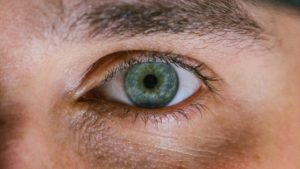Most people do not want to be “different.” People usually wish to fit in and do their tasks well. However, living with a mental disorder such as Attention Deficit Disorder (ADD) or Attention Deficit Hyperactivity Disorder (ADHD) can make things very difficult.
The Complications of Adult ADD/ADHD
There are two primary types of adult ADD/ADHD – though some may have a combination of both. Those with the first one primarily suffer from inattentiveness.
Sufferers often have difficulty focusing and paying attention to details. They are easily distracted and regularly forget to do necessary tasks. This causes them to miss deadlines, submit incomplete work, or have trouble with repetitive work.
In the other type, the sufferer predominantly displays hyperactive and impulsive symptoms. They have difficulty sitting still as their excessive energy causes them to always be on the go or to talk excessively. Moreover, they have problems waiting their turn, causing them to interrupt or intrude upon others in conversation or in daily life activities.
The Special Abilities
 Despite the difficulties of living with ADD/ADHD, if utilized in the right way, a person can harness their “differences” to their advantage. It may take some time, practice, and help; but it can be done. The following are three such special abilities of someone with ADD/ADHD.
Despite the difficulties of living with ADD/ADHD, if utilized in the right way, a person can harness their “differences” to their advantage. It may take some time, practice, and help; but it can be done. The following are three such special abilities of someone with ADD/ADHD.
Hyperfocus
Though a symptom of ADD/ADHD is difficulty concentrating on tasks, this generally pertains to activities that the sufferer does not like. However, for the activities they DO have interest in, someone with ADD/ADHD is able to really zoom in on the task, working for hours on end, with minimal need for rest, to finish the job. Thus, if used properly, a person can succeed in their chosen field if they can discover what they want to do and how they can manage their time for it.
There are many researchers, business people, athletes, and celebrities who have struggled early on with ADD/ADHD; but they came up on top by learning to manage their symptoms by focusing on what they do best.
Olympic champion Michael Phelps, for example, has been able to translate this hyperfocus into a practice regimen where he spends many hours in the pool and many more hours outside it doing related exercises, which is why he has so many gold medals and is a household name.
Super Perception
The average brain usually filters out unnecessary data so their mind can focus on the task at hand. The “problem” of those with ADD/ADHD is that their brain accepts a lot of sensory input which causes them to easily become distracted.
The upside, however, of not filtering out all that information is that they are able to pick up details that “regular people” may miss out. This allows them to become quite perceptive about things going on around them (e.g. what may happen next, what someone might choose) as if they have ESP.
Enhanced Imagination
 Recent research has shown that those with ADD/ADHD tend to be more creative than those without it, allowing them to imagine all kinds of options or solutions to a problem.
Recent research has shown that those with ADD/ADHD tend to be more creative than those without it, allowing them to imagine all kinds of options or solutions to a problem.
One possible reason may be the theta waves that the ADD/ADHD brain emits, allowing their mind to relax more than usual. Another reason may be all the details that they are able to pick up that regular people do not notice (super perception), helping them to see the other possibilities.
Though there is that downside of constant internal distraction due to so many choices; if harnessed well, they can really contribute to an organization.
Harnessing the Abilities
While it is good to know that such special abilities exist, the challenge is harnessing them properly. The following can help them to do so.
1. Understand one’s interests
For someone with ADD/ADHD, they must discover their true interests so that their hyperfocus can be directed toward meaningful activities. For example, if sports is one’s passion, then a career as an athlete, can be a great choice especially as they get to use their excessive energy. If not possible, then something connected to sports – sports writer, sports statistician, coach, team manager, or referee – can be great.
Unfortunately, if this is not done, other career fields or tasks may just bore the person, leading to career difficulties. The other negative is that their hyperfocus may be “wasted” on non-essentials (e.g. endless hours of watching cartoons), causing other life problems.
2. Prevent distractions
 During important activities, distractions need to be prevented. This means turning off gadgets or ensuring that nobody disturbs them for the next hour or so unless it is a real emergency. In this way, the special abilities may be used uninterrupted.
During important activities, distractions need to be prevented. This means turning off gadgets or ensuring that nobody disturbs them for the next hour or so unless it is a real emergency. In this way, the special abilities may be used uninterrupted.
These distractions, however, are not just limited to phone calls, online messages, or visitors. Another form of mental distraction includes the working environment. Clutter adds to the confusion, especially if there is something on one’s desk, for example, that needs to be done immediately. An organized environment better allows those with ADD/ADHD to remember and concentrate on what is important.
Sometimes preventing distractions may also mean limiting personal choices. Some successful business people have been known to limit their personal wardrobe to just a few options so that there is no need to think about what to wear. This may also help someone with ADD/ADHD.
3. Delegate to others
While the ADD/ADHD brain is actually good at multi-tasking, doing too many smaller tasks will have them expend their energy on less meaningful work. If possible, the smaller tasks should be delegated to others so that their time, energy, and special abilities can be used for something more important.
4. Time management
As time management is a big problem for those with ADD/ADHD, there must be a conscious effort to strictly manage their time. This means goal setting, both short term and long term, so that these may be accomplished according to a specific timeline. Gadgets can obviously help with this. However, if they are too distracting, then an ordinary planner can do.
5. Keep healthy
And like in all situations, it always pays to stay healthy to maximize one’s skills and potentials. Exercise, enough rest, a good diet, and spiritual peace will ensure that the special abilities of someone with ADD/ADHD are always at the optimum level.
Seeking Help from a Christian Counselor
 Something that many professionals do today is to hire a personal coach to help manage their career and personal lives to reach their full potential. Due to the difficulties of dealing with a mental disorder, many with ADD/ADHD do the same.
Something that many professionals do today is to hire a personal coach to help manage their career and personal lives to reach their full potential. Due to the difficulties of dealing with a mental disorder, many with ADD/ADHD do the same.
But while a secular coach can be helpful, it is better to seek the assistance of a Christian counselor. Aside from using the latest counseling and coaching methods to help in goal planning, prioritization, and dealing with the frustrations one may have with ADD/ADHD; the Christian counselor will connect the person to our Lord Jesus Christ. If a person’s walk with Christ is strong and true, there will be peace of mind, inner acceptance, and divine strength and wisdom to help them in their daily battles.
If you or a friend needs help in harnessing these ADD/ADHD special abilities, seek Christian counseling soon. As a child of God, He wants you to overcome your struggles and use these talents to be a blessing to your family and to those around you.
“The Face Behind the Mask”, Courtesy of Joey Nicotra, Unsplash.com; CC0 License; “Eye Contact”, Courtesy of Jordan Whitfield, Unsplash.com; CC0 License; “Thinking,” courtesy of Jacob Botter, Flickr CreativeCommons (CC BY 2.0); “Meeting,” courtesy of Tim Gouw, unsplash.com, CC0 License
-
Kate Motaung: Curator
Kate Motaung is the Senior Writer, Editor, and Content Manager for a multi-state company. She is the author of several books including Letters to Grief, 101 Prayers for Comfort in Difficult Times, and A Place to Land: A Story of Longing and Belonging...





